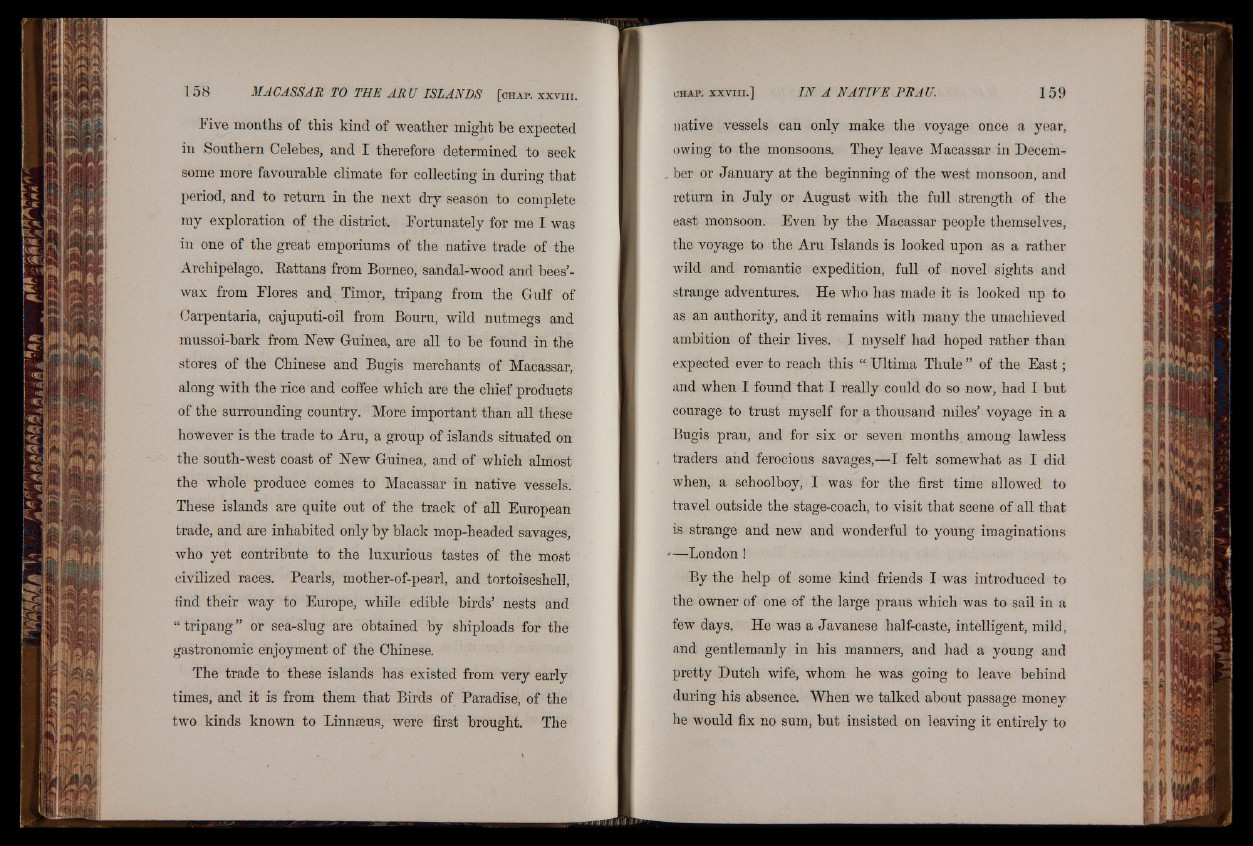
liv e months of this kind of weather might be expected
in Southern Celebes, and I therefore determined to seek
some more favourable climate for collecting in during that
period, and to return in the next dry season to complete
my exploration of the district. Fortunately for me I was
in one of the great emporiums of the native trade of the
Archipelago. Rattans from Borneo, sandal-wood and bees’-
wax from Flores and Timor, tripang from the Gulf of
Carpentaria, cajuputi-oil from Bouru, wild nutmegs and
mussoi-bark from New Guinea, are all to be found in the
stores of the Chinese and Bugis merchants of Macassar,
along with the rice and coffee which are the chief products
of the surrounding country. More important than all these
however is the trade to Aru, a group of islands situated on
the south-west coast of New Guinea, and of which almost
the whole produce comes to Macassar in native vessels.
These islands are quite out of the track of all European
trade, and are inhabited only by black mop-headed savages,
who yet contribute to the luxurious tastes of the most
civilized races. Pearls, mother-of-pearl, and tortoiseshell,
find their way to Europe, while edible birds’ nests and
“ tripang” or sea-slug are obtained by shiploads for the
gastronomic enjoyment of the Chinese.
The trade to these islands has existed from very early
times, and it is from them that Birds of Paradise, of the
two kinds known to Linnaeus, were first brought. The
native vessels can only make the voyage once a year,
owing to the monsoons. They leave Macassar in Decem-
. ber or January at the beginning of the west monsoon, and
return in July or August with the full strength of the
east monsoon. Even by the Macassar people themselves,
the voyage to the Aru Islands is looked upon as a rather
wild and romantic expedition, full of novel sights and
strange adventures. He who has made it is looked up to
as an authority, and it remains with many the unachieved
ambition of their lives. I myself had hoped rather than
expected ever to reach this “ Ultima Thule ” of the E a st;
and when I found that I really could do so now, had I but
courage to trust myself for a thousand miles’ voyage in a
Bugis prau, and for six or seven months, among lawless
traders and ferocious savages,—I felt somewhat as I did
when, a schoolboy, I was for the first time allowed to
travel outside the stage-coach, to visit that scene of all that
is strange and new and wonderful to young imaginations
*—London !
By the help of some kind friends I was introduced to
the owner of one of the large praus which was to sail in a
few days. He was a Javanese half-caste, intelligent, mild,
and gentlemanly in his manners, and had a young and
pretty Dutch wife, whom he was going to leave behind
during his absence. When we talked about passage money
he would fix no sum, but insisted on leaving it entirely to